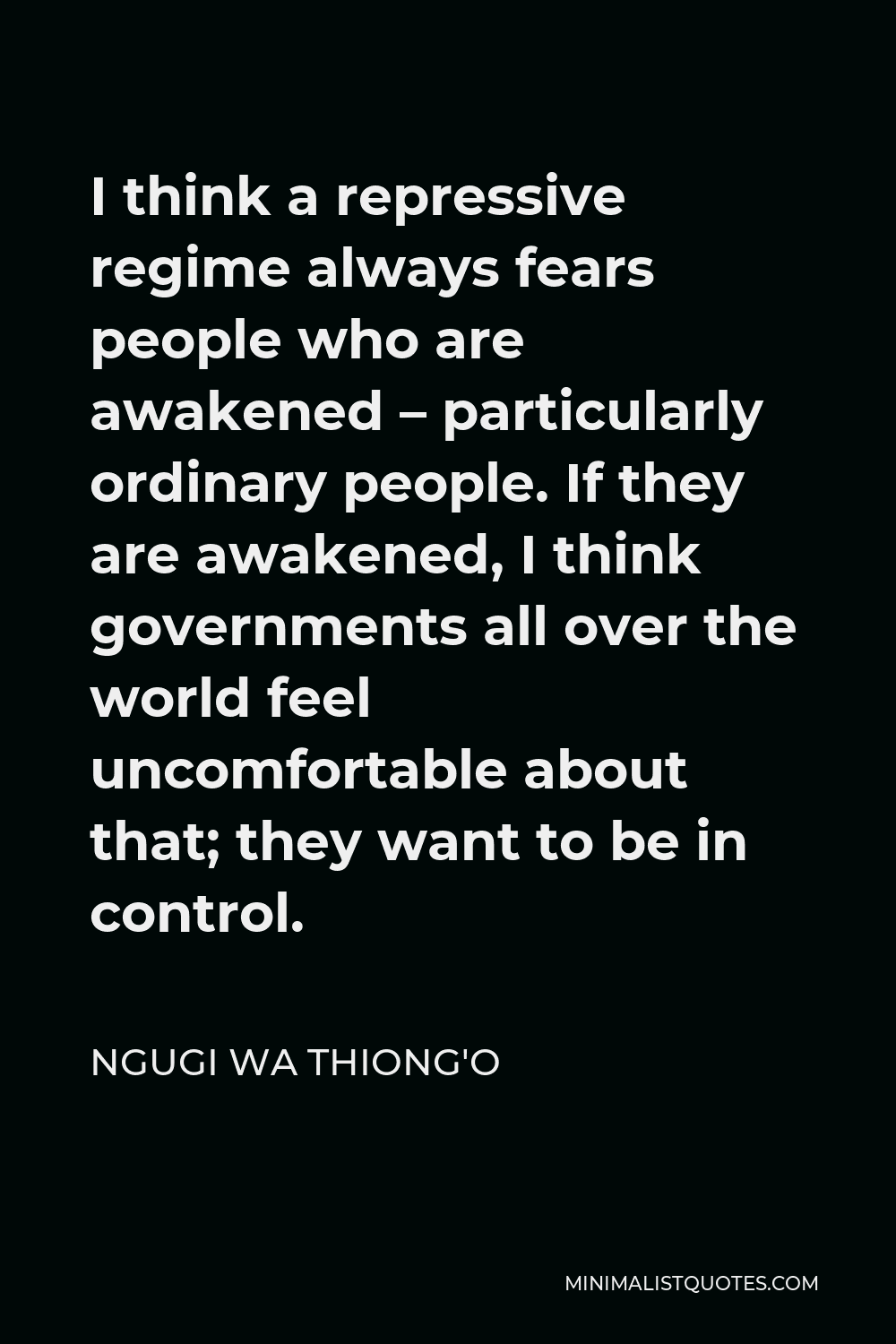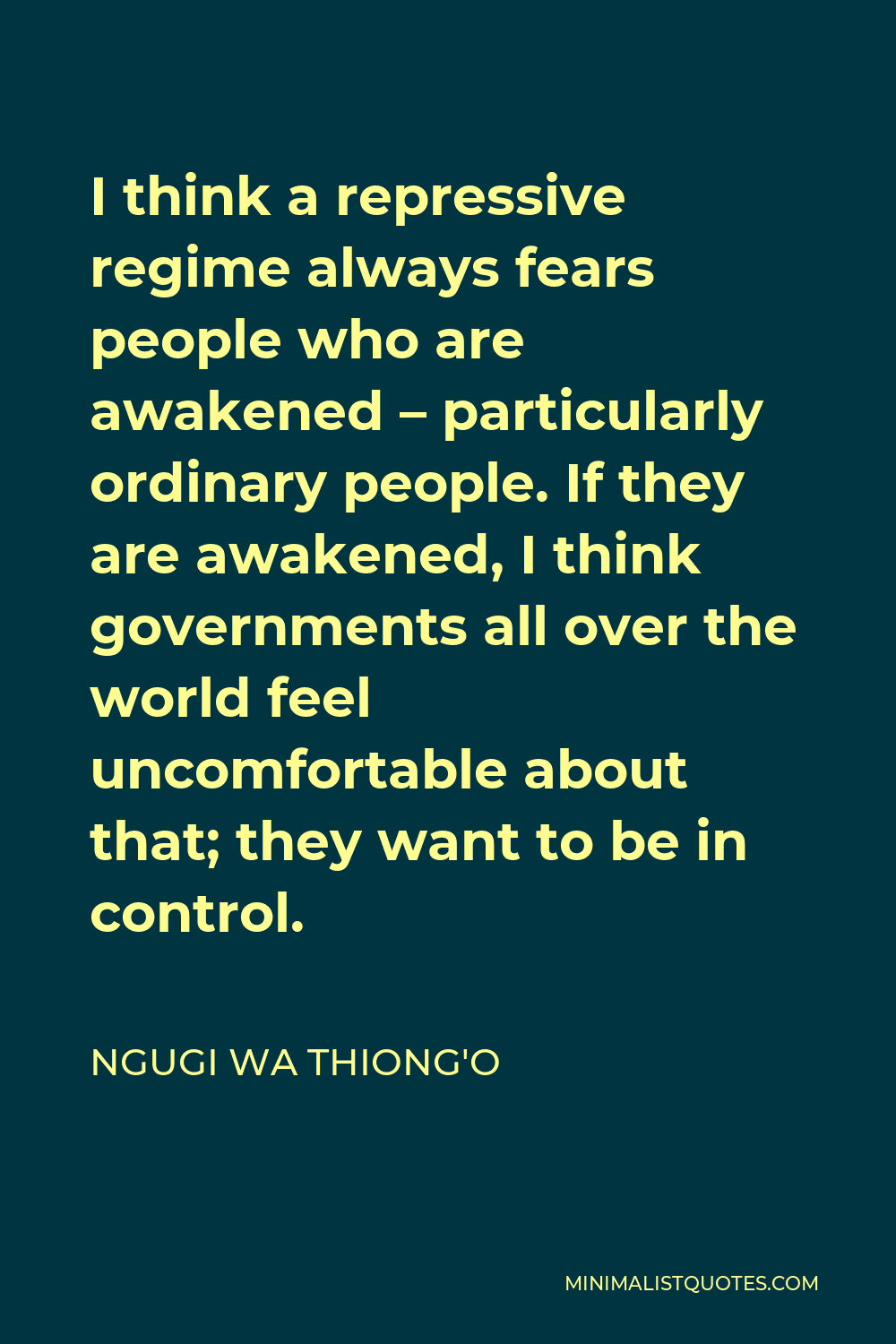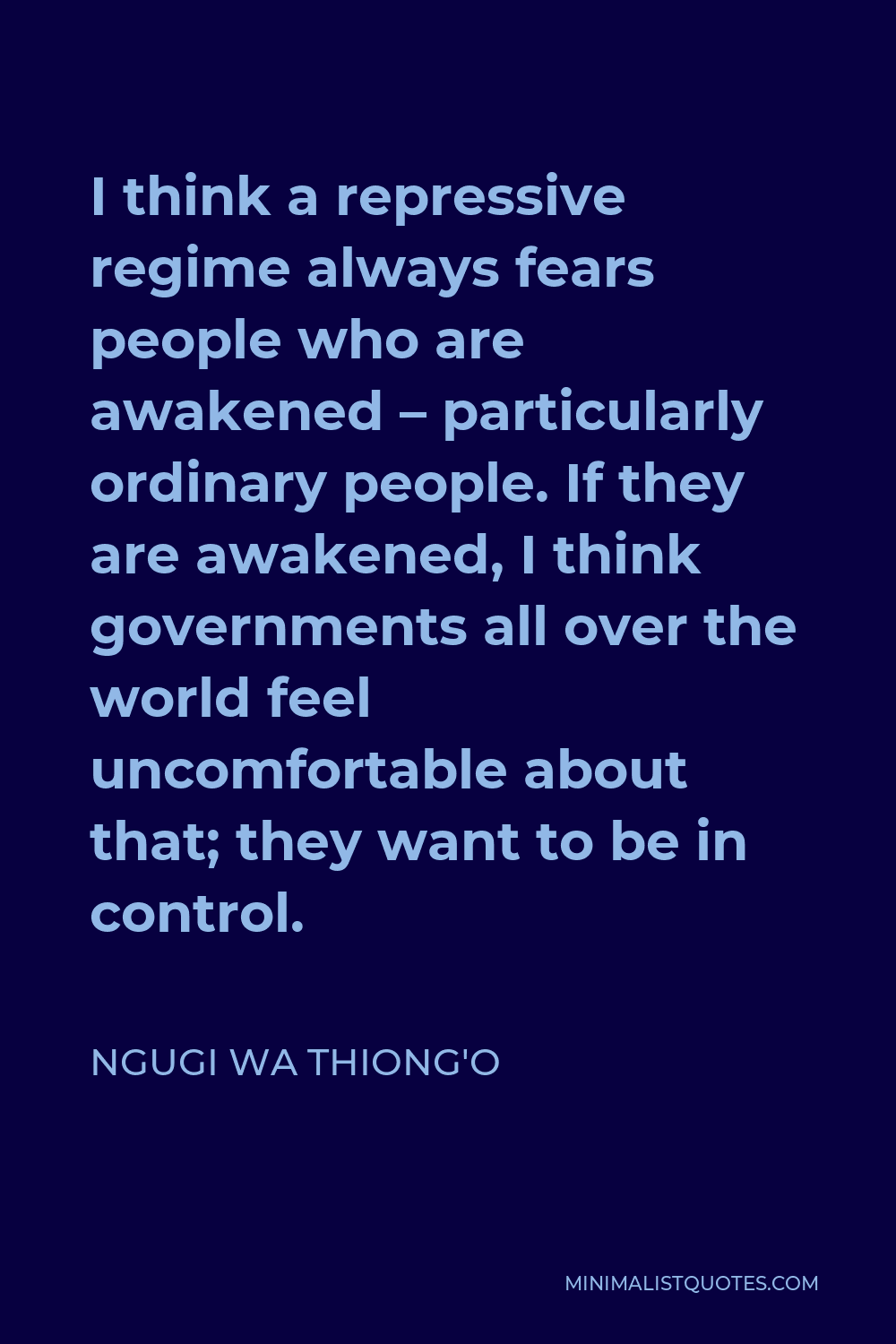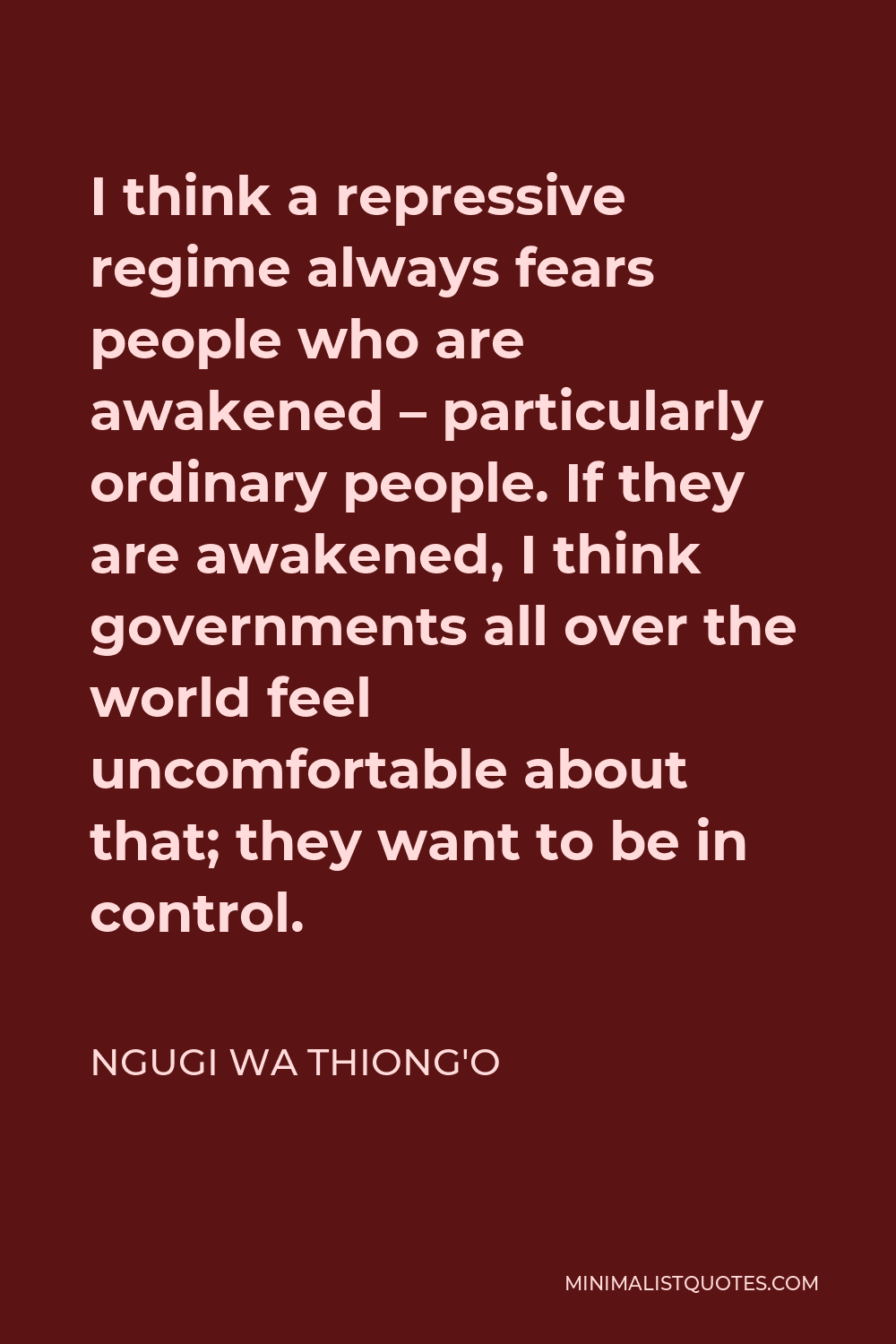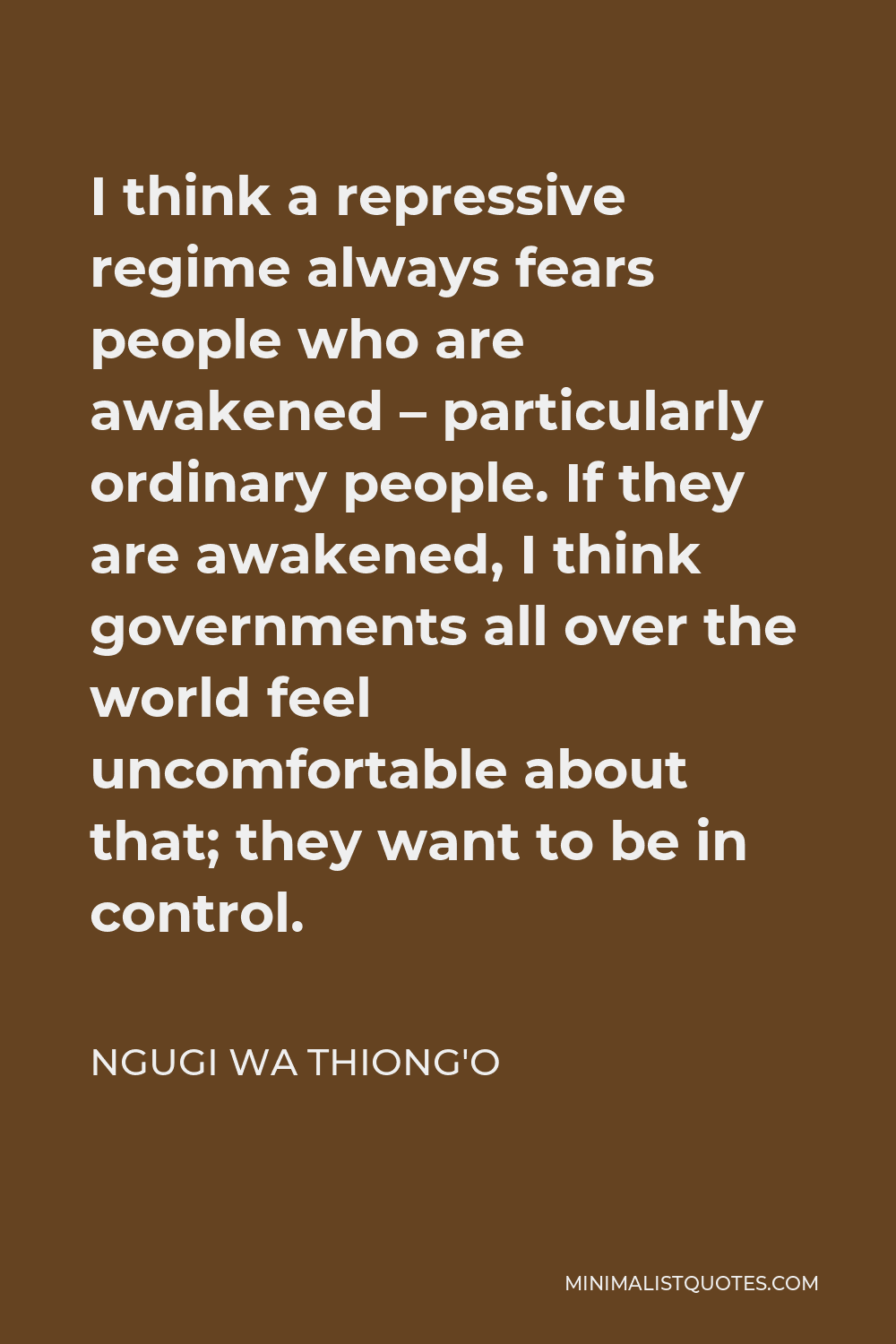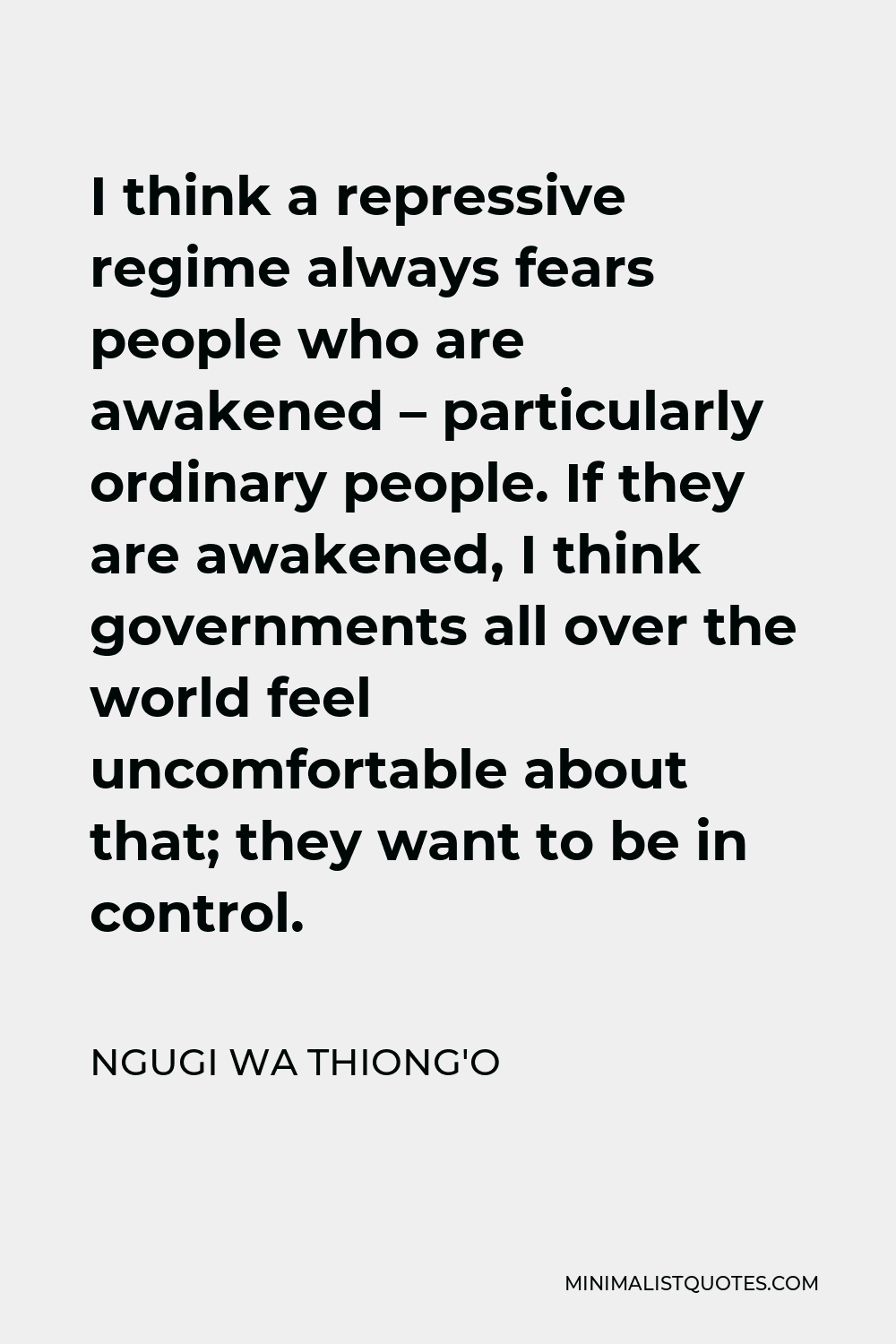Through the act of translation we break out of linguistic confinement and reach many other communities.
NGUGI WA THIONG'OI think a repressive regime always fears people who are awakened – particularly ordinary people. If they are awakened, I think governments all over the world feel uncomfortable about that; they want to be in control.
More Ngugi wa Thiong'o Quotes
-





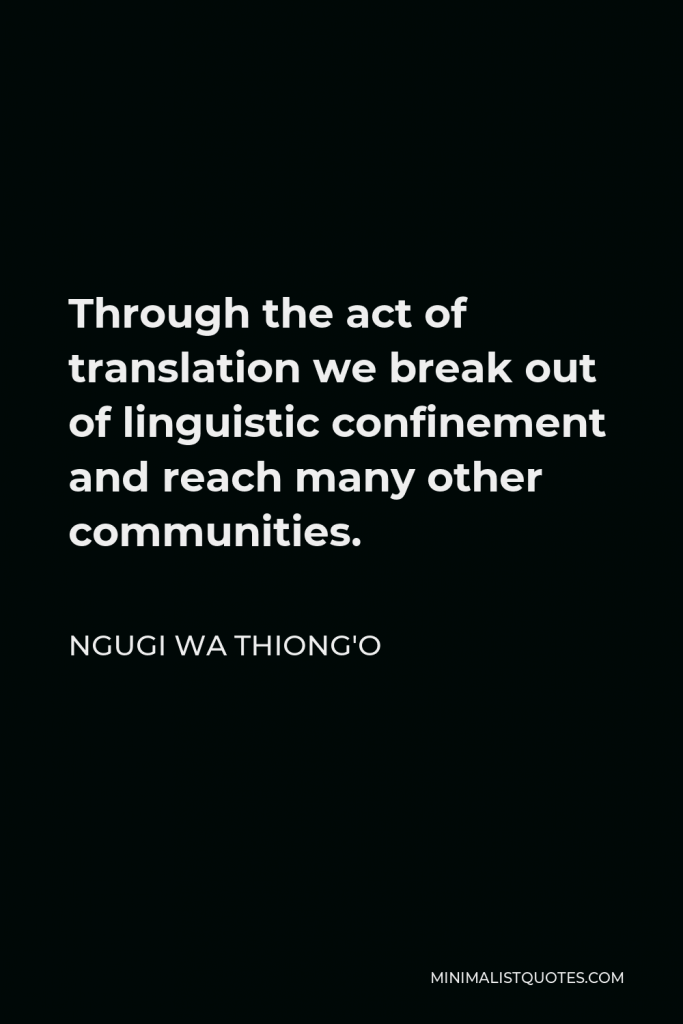

-





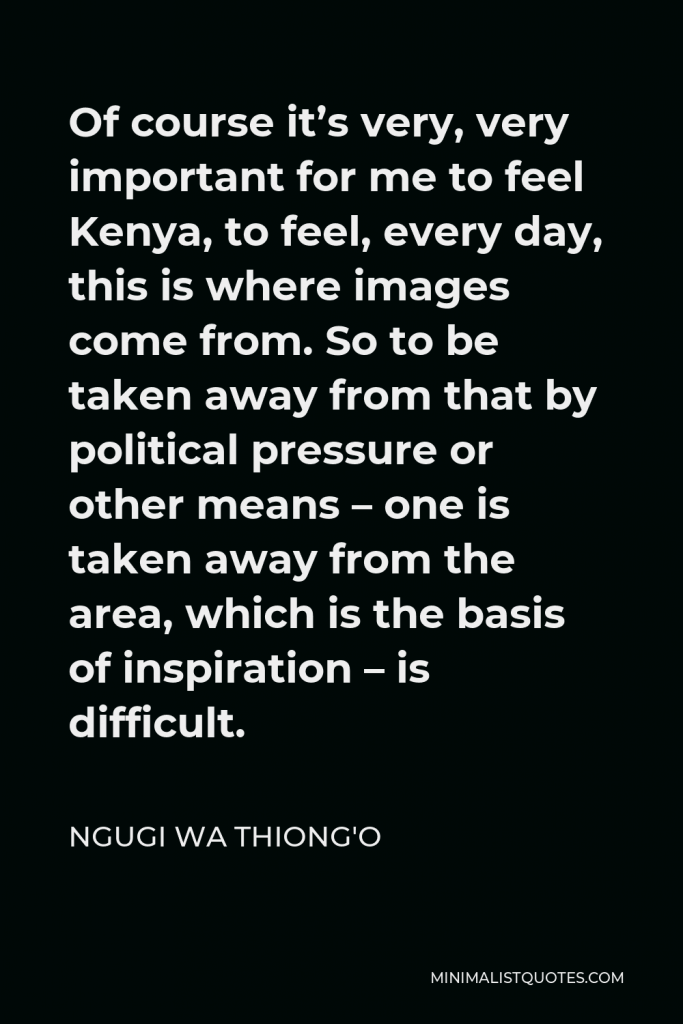

Of course it’s very, very important for me to feel Kenya, to feel, every day, this is where images come from. So to be taken away from that by political pressure or other means – one is taken away from the area, which is the basis of inspiration – is difficult.
NGUGI WA THIONG'O -





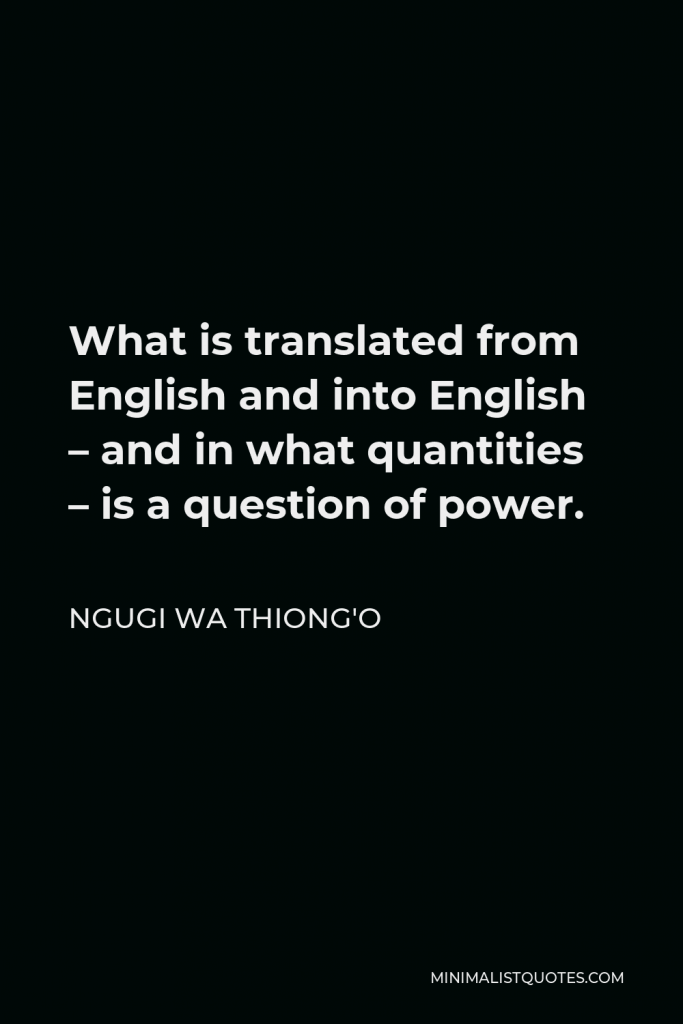

What is translated from English and into English – and in what quantities – is a question of power.
NGUGI WA THIONG'O -





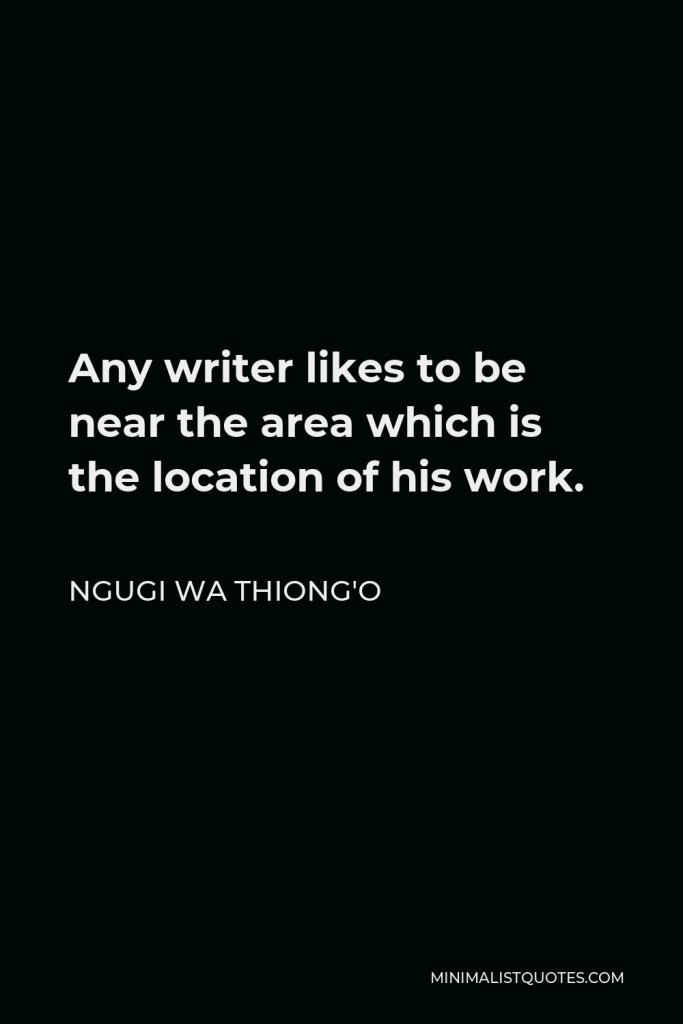

Any writer likes to be near the area which is the location of his work.
NGUGI WA THIONG'O -





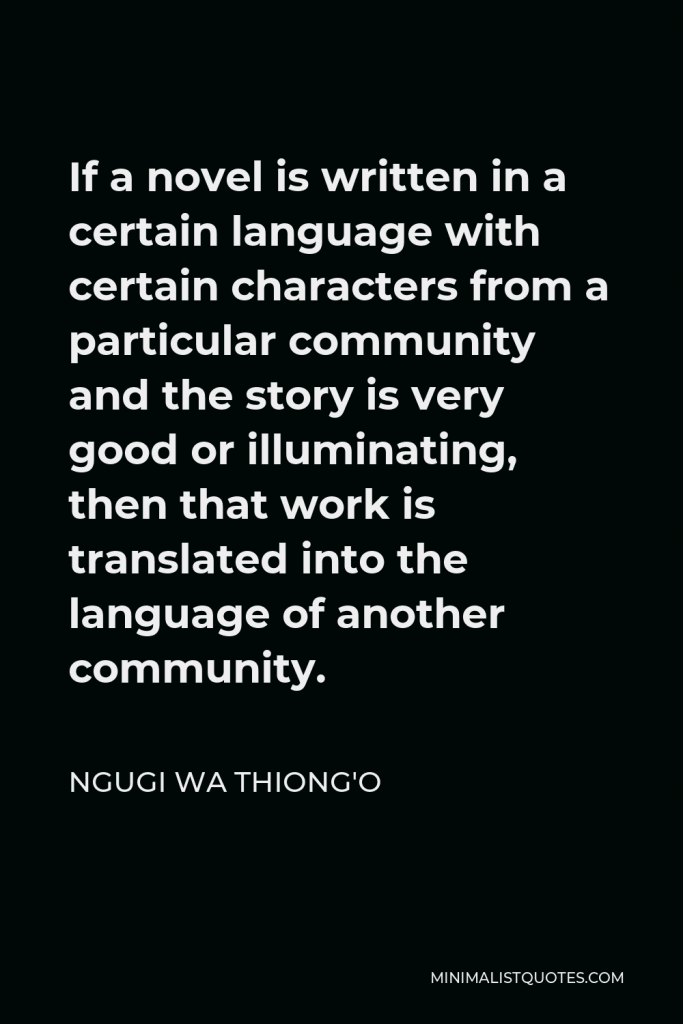

If a novel is written in a certain language with certain characters from a particular community and the story is very good or illuminating, then that work is translated into the language of another community.
NGUGI WA THIONG'O -





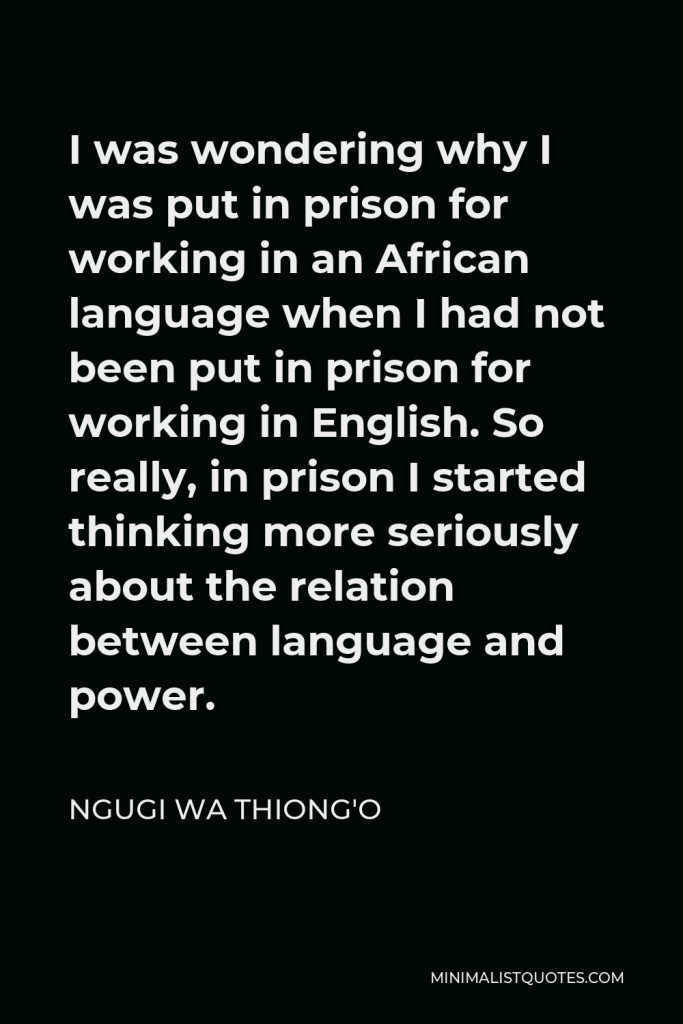

I was wondering why I was put in prison for working in an African language when I had not been put in prison for working in English. So really, in prison I started thinking more seriously about the relation between language and power.
NGUGI WA THIONG'O -





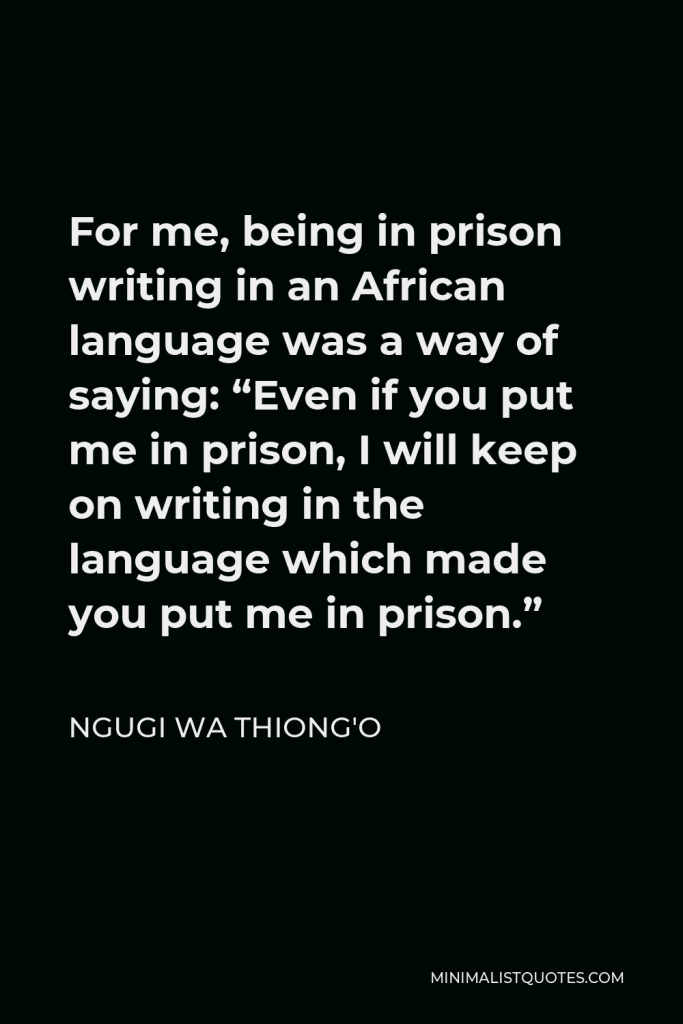

For me, being in prison writing in an African language was a way of saying: “Even if you put me in prison, I will keep on writing in the language which made you put me in prison.”
NGUGI WA THIONG'O -





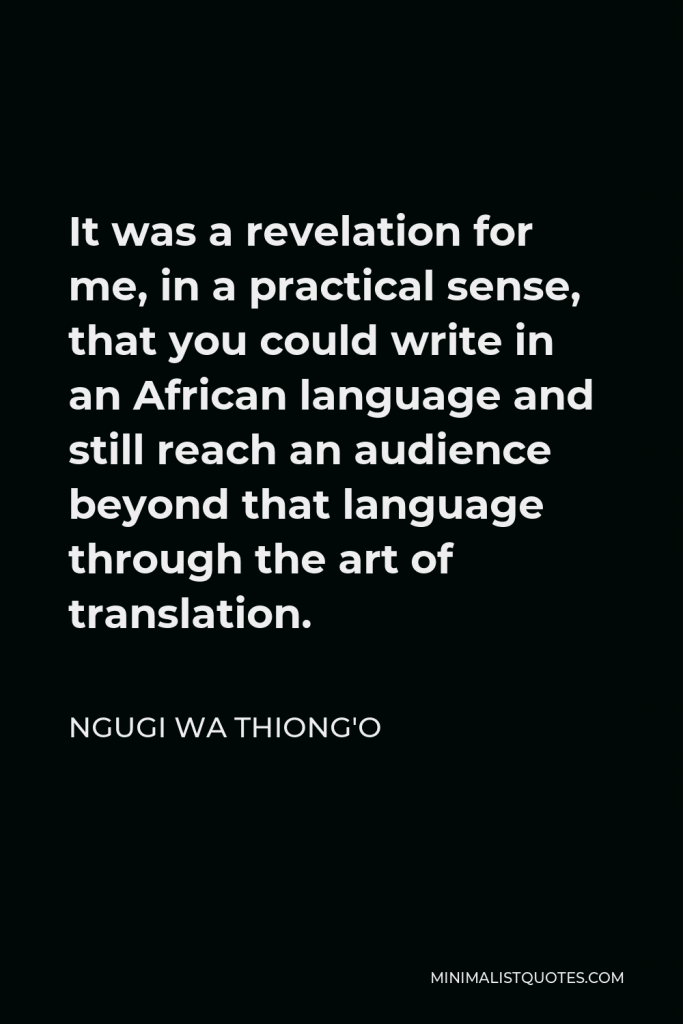

It was a revelation for me, in a practical sense, that you could write in an African language and still reach an audience beyond that language through the art of translation.
NGUGI WA THIONG'O -





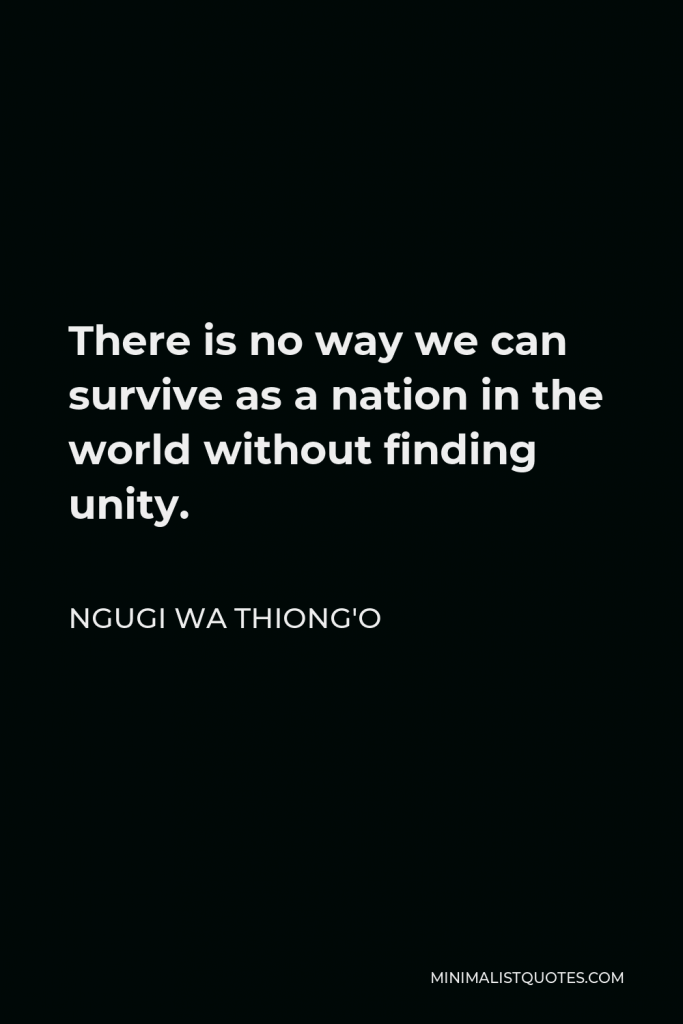

There is no way we can survive as a nation in the world without finding unity.
NGUGI WA THIONG'O -





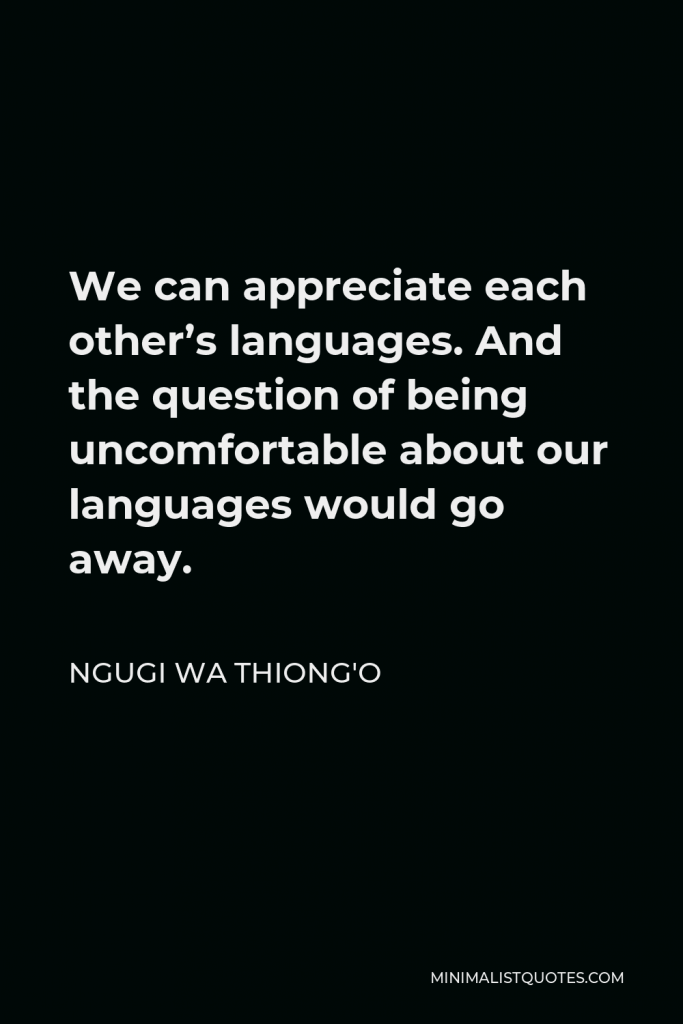

We can appreciate each other’s languages. And the question of being uncomfortable about our languages would go away.
NGUGI WA THIONG'O -





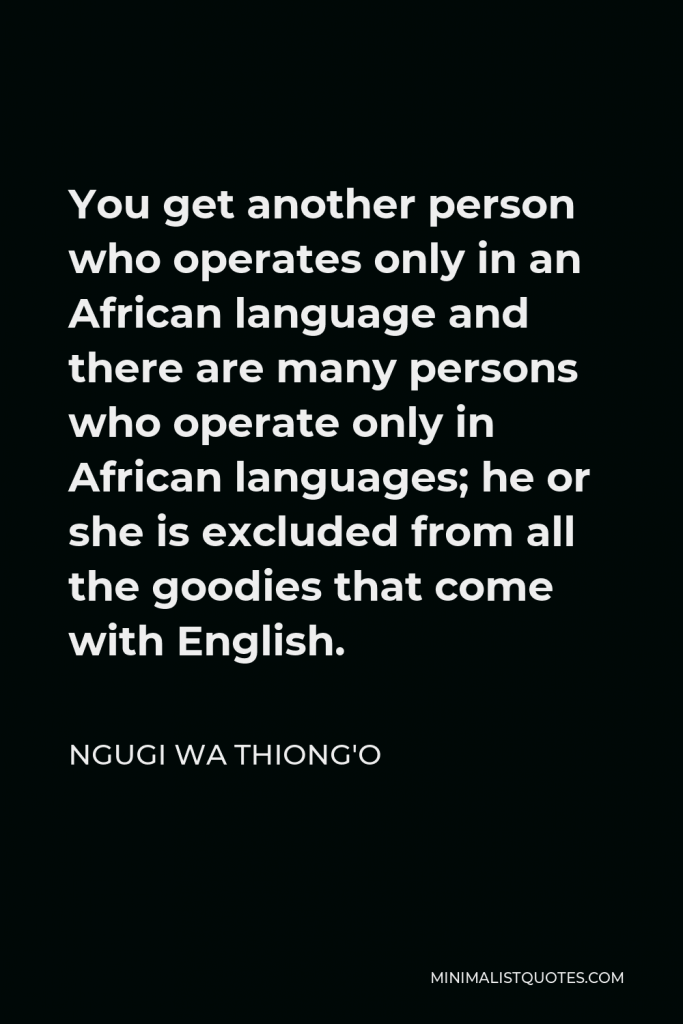

You get another person who operates only in an African language and there are many persons who operate only in African languages; he or she is excluded from all the goodies that come with English.
NGUGI WA THIONG'O -





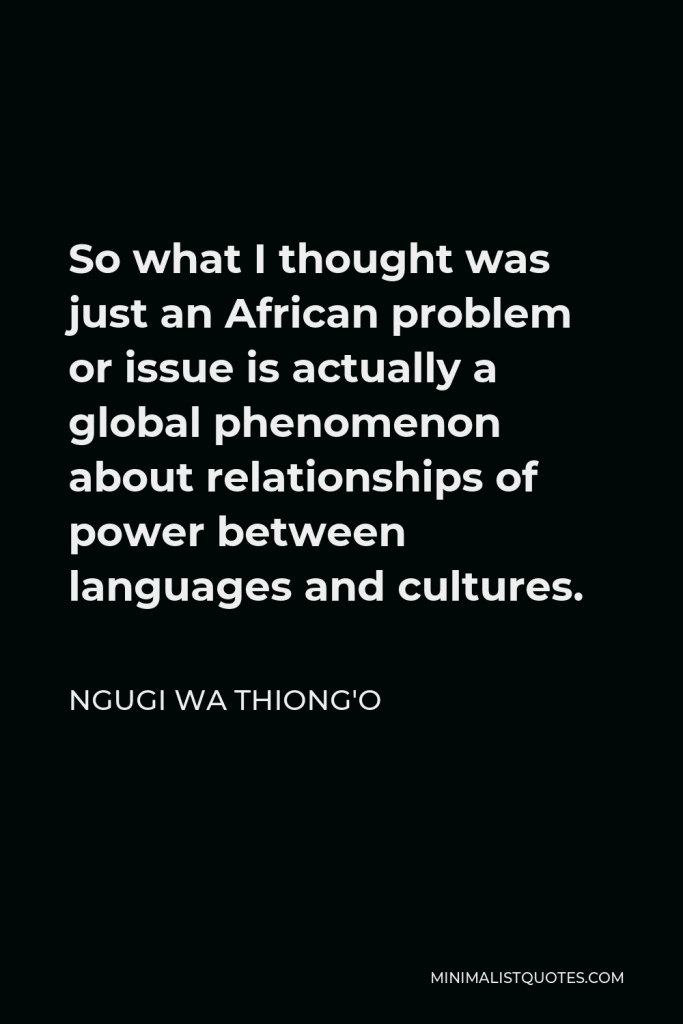

So what I thought was just an African problem or issue is actually a global phenomenon about relationships of power between languages and cultures.
NGUGI WA THIONG'O -





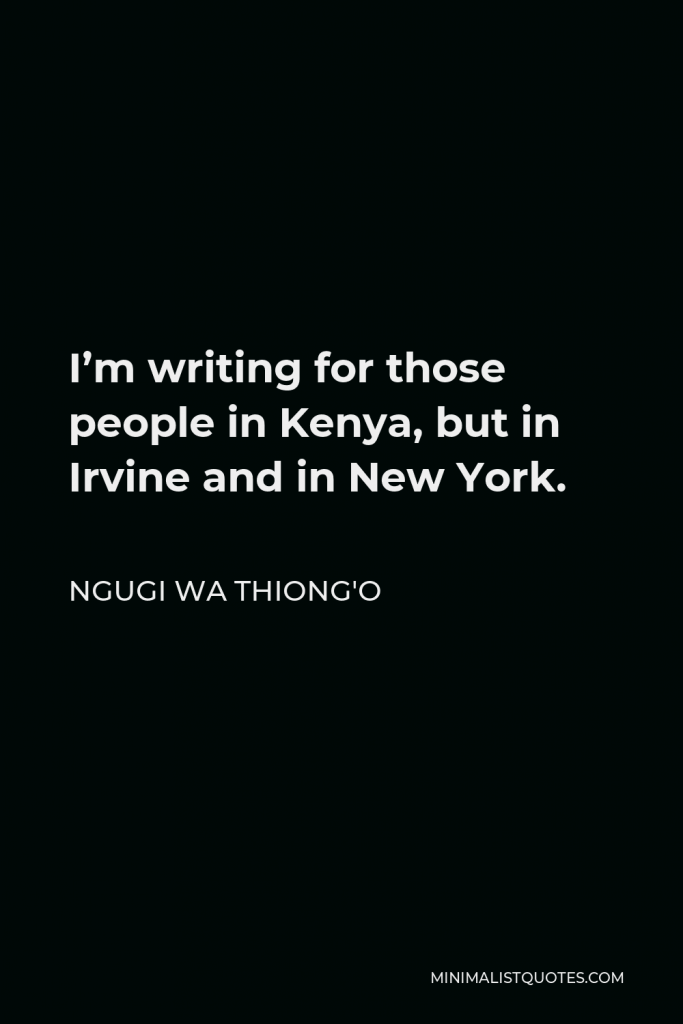

I’m writing for those people in Kenya, but in Irvine and in New York.
NGUGI WA THIONG'O -





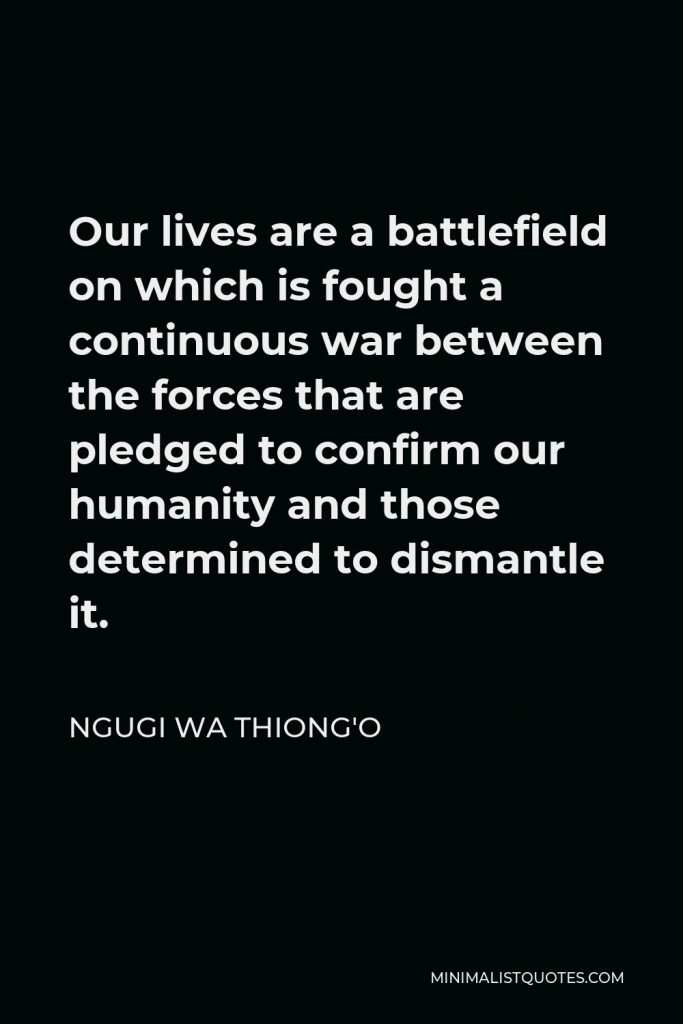

Our lives are a battlefield on which is fought a continuous war between the forces that are pledged to confirm our humanity and those determined to dismantle it.
NGUGI WA THIONG'O -





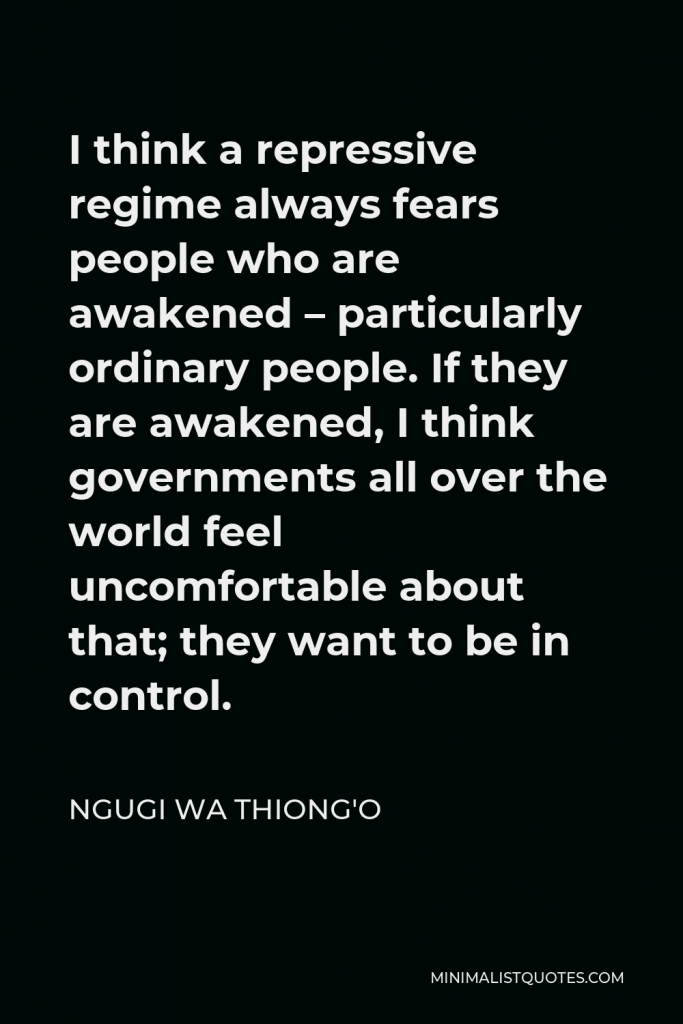

I think a repressive regime always fears people who are awakened – particularly ordinary people. If they are awakened, I think governments all over the world feel uncomfortable about that; they want to be in control.
NGUGI WA THIONG'O -





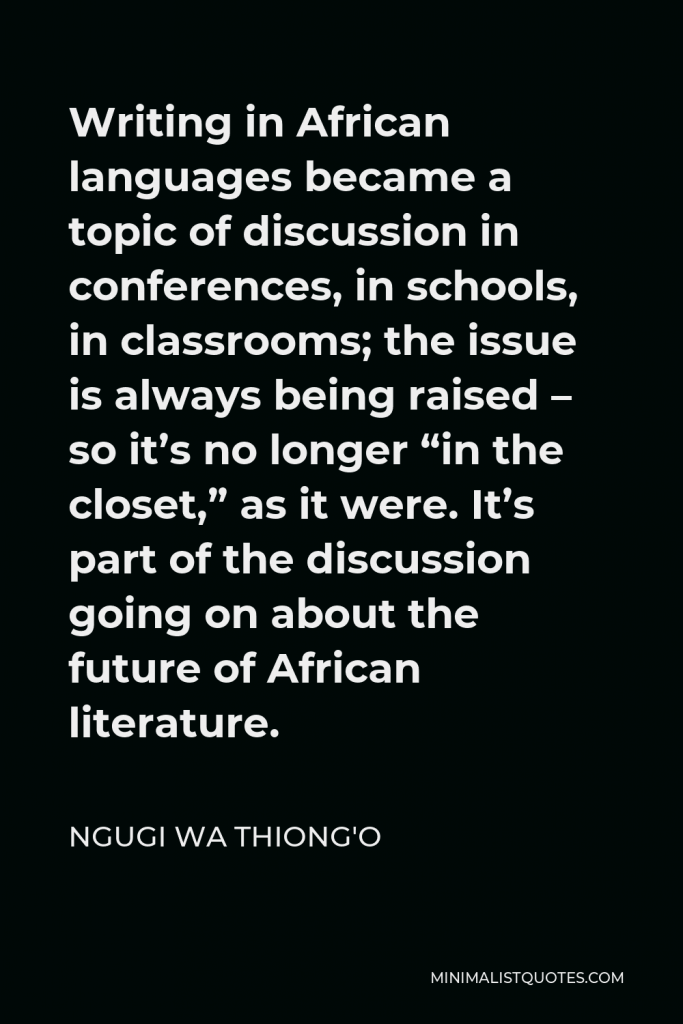

Writing in African languages became a topic of discussion in conferences, in schools, in classrooms; the issue is always being raised – so it’s no longer “in the closet,” as it were. It’s part of the discussion going on about the future of African literature.
NGUGI WA THIONG'O
